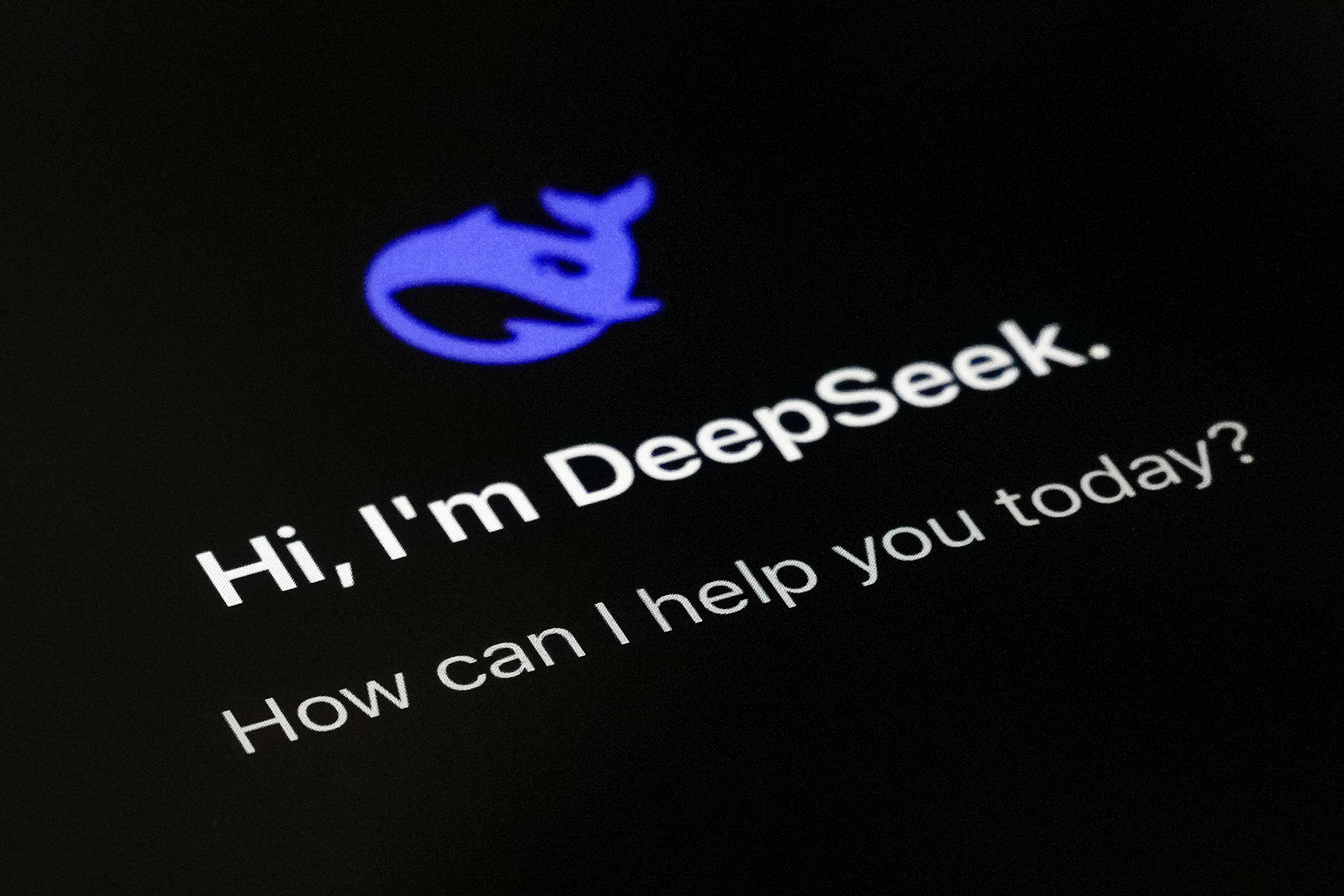WASHINGTON (AP) — Legislation introduced Wednesday in Congress would block Chinese artificial intelligence systems from federal agencies as a bipartisan group of lawmakers pledged to ensure that the United States would prevail against China in the global competition over AI.
“We are in a new Cold War, and AI is the strategic technology at the center,” said Republican Rep. John Moolenaar of Michigan, chairman of the House Select Committee on China, as he opened a hearing on the matter. “The future balance of power may very well be determined by who leads in AI.”
About five months ago, a Chinese technology startup called DeepSeek introduced an AI model that rivaled platforms from OpenAI and Google in performance, but cost only a fraction to build. This raised concerns that China was catching up to U.S. despite restrictions on chips and other key technologies used to develop AI.
That race is now a central part of the U.S.-China rivalry, and so much is at stake that the U.S. must win, witnesses told the committee.
The two countries are “in a long-term techno-security competition that will determine the shape of the global political order for the coming years,” said Thomas Mahnken, president and CEO of the Center for Strategic and Budgetary Assessments.
Jack Clark, co-founder and head of policy at Anthropic, said AI has built-in values.
“I know that AI systems are a reflection of the societies that are built from. AI built in democracies will lead to better technology for all of humanity. AI built in authoritarian nations will ... be inescapably intertwined and imbued with authoritarianism,” Clark said. “We must take decisive action to ensure America prevails.”
Earlier this year, Chris Lehane, OpenAI’s head of global affairs, told reporters that the U.S. and China were the only two countries in the world that could build AI at scale. The competition, which he described as one between democratic AI and autocratic AI, is “very real and very serious,” and the stakes are “enormous,” he said, for “the global rails of AI will be built by one of those two countries.”
The 2025 AI Index Report by Stanford University’s Human-Centered Artificial Intelligence center has the U.S. in the lead in producing top AI models. But the report noted China is rapidly closing the performance gap, reaching near parity in 2024 on several major benchmarks. It also showed that China leads in AI publications and patents.
At the hearing, Clark urged the lawmakers to maintain and strengthen export controls of advanced chips to China.
“This competition fundamentally runs on compute,” he said. The U.S. must control the flow of powerful chips to China, Clark said, “or else you’re giving them the tools they will need to build powerful AI to harm American interests.”
Mark Beall, Jr., president of government affairs at The AI Policy Network, said there are “a number of very glaring gaps” in the U.S. export controls that have allowed China to obtain controlled chips. Lawmakers earlier this year introduced a bill to track such chips to ensure they would not be diverted to the wrong hands.
The bill announced Wednesday would ban Chinese AI systems in the federal government. Sponsors are Reps. Ritchie Torres, D-N.Y., and Darin LaHood, R-Ill., and Sens. Rick Scott, R-Fla., and Gary Peters, D-Mich.
“The U.S. must draw a hard line: hostile AI systems have no business operating inside our government,” Moolenaar said.
Rep. Raja Krishnamoorthi of Illinois, the committee’s top Democrat, said AI controlled by foreign adversaries “poses a direct threat to our national security, our data and our government operations.”
The bill seeks to identify AI systems developed by foreign adversaries and ban their use in the U.S. government, with exceptions for use in research and counterterrorism.
___
AP Business Writer Kelvin Chan in London contributed to this report.
___
This story has been corrected to reflect that the name of the Chinese technology start-up is DeepSeek, not DeekSeek.









